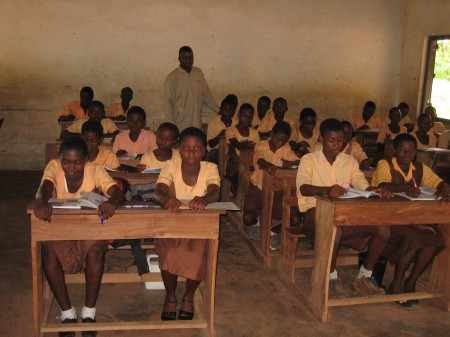Lack of access to early childhood development centres has become a huge disincentive and a major drawback on efforts at promoting child education in three Asante-Akim Central communities.
Boatengkrom, Nyamebekyere and Nsiakrom have neither a kindergarten nor basic school and kids there have to make daily round trips of about six kilometres on foot to attend classes at Dwease.
Children below the age of 10 years, unable to travel that long distances are forced to stay in the house, often accompanying their parents to farms.
Ms Eunice Dankwah, a mother and a member of the Boatengkrom Unit Committee, told the Ghana News Agency (GNA), that the situation “is quite disturbing”.
The late start of schooling by the children was both awkward and unhelpful to their academic progression, as those in their age-group elsewhere invariably tend to stay far ahead of them.
The GNA had visited the area under the STAR-Ghana’s sponsored media auditing and tracking of development projects, a multi-donor polled initiative, launched to shine a spotlight on how government’s resources were helping to transform the lives of the people, particularly the rural population.
The goal was to aid transparency and promote good governance.
Ms Dankwah said through self-help, they had built a three-unit classroom block to serve the three communities but the poor work ethics of teachers posted there was discouraging parents from putting their children in the school.
She complained that “the teachers frequently absent themselves from the classroom and appear to have no motivation to teach”.
To buttress her claim, she took the GNA to the school and it was closed at a time classes were supposed to be going on.
Ms Dankwah said they had made several appeals to the political and education authorities to act and change the situation but they were yet to respond.
She said it was important to make sure the kids were given the opportunity to receive pre-school education before entering the main school system.
Source: GNA


